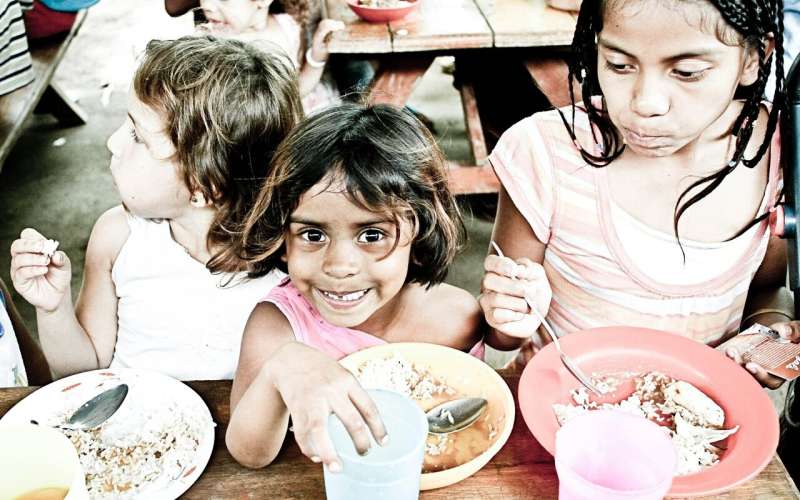How lifting children out of poverty today will help them tomorrow

As part of the latest COVID-19 relief package, the federal government has expanded the child tax credit and made it available except those with the highest incomes. Families will get US$3,000 per kid ages 6 to 17, and $3,600 for younger children. The Internal Revenue Service will deliver half of this money as monthly payments of either $250 or $300 during the second half of 2021 and the rest as a lump sum during the 2022 tax season.
If the government extends this benefit beyond the one year that's currently funded, as many and would like, this policy has the potential to dramatically .
This kind of arrangement is , such as Canada, Germany and the United Kingdom. who , we believe it will have lasting benefits.
Long-term benefits
Many studies conducted in recent years show that lifting children from the burdens of poverty has the potential to improve their health and ability to get a good education.
For example, economist found that when low-income families with young kids receive benefits from the , the children are less likely to miss school and more likely to be in good health as they get older.
A team of researchers who assessed the effects of conducted in the 1990s similarly found that helping low-income families pay their bills leads to their kids' doing better at school in the future.
Other studies have looked into what happened when low-income families with children wound up with more money through expansions in the , or EITC—a benefit paid to workers with low levels of earnings that the government substantially .
Researchers have found that this increased income was associated later on with students' and becoming more likely to , and in early adulthood they are more likely to .
Another study that one of us conducted with two other colleagues found that babies born to families benefiting from the EITC . Other research found that women who give birth while benefiting from the EITC .
And two of us conducted a study that detected for people whose families benefited from the introduction of the when they were children in the 1960s and early 1970s. Similarly, researchers have seen long-term improvements in terms of increased educational attainment among low-income children whose families received paid to members of the out of casino profits.
When families with young children get access to cash welfare, that support has even been linked to higher earnings in adulthood and .
An incomplete fix
This entire body of research suggests that the benefits of alleviating poverty are significant when children get more money, food, health care and other resources early on, especially between .
To be sure, providing all but the wealthiest families who have children under 18 with will not begin to do away with all of the inequalities facing children in America. Nor will these payments ensure that all children ultimately have the same shot at good health, a great education or, down the road, opportunities to make a good living.
But we do believe that this policy, especially if it takes hold for the long term, will meaningfully improve millions of children's lives and give them a much better start in life.
Among other things, it reverses a troubling trend. Since 1990, increases in federal spending aimed at benefiting children, including changes to the , have often in a country where before the COVID-19 pandemic began.
Provided by The Conversation
This article is republished from under a Creative Commons license. Read the .![]() This article is republished from under a Creative Commons license. Read the .
This article is republished from under a Creative Commons license. Read the .![]()


















